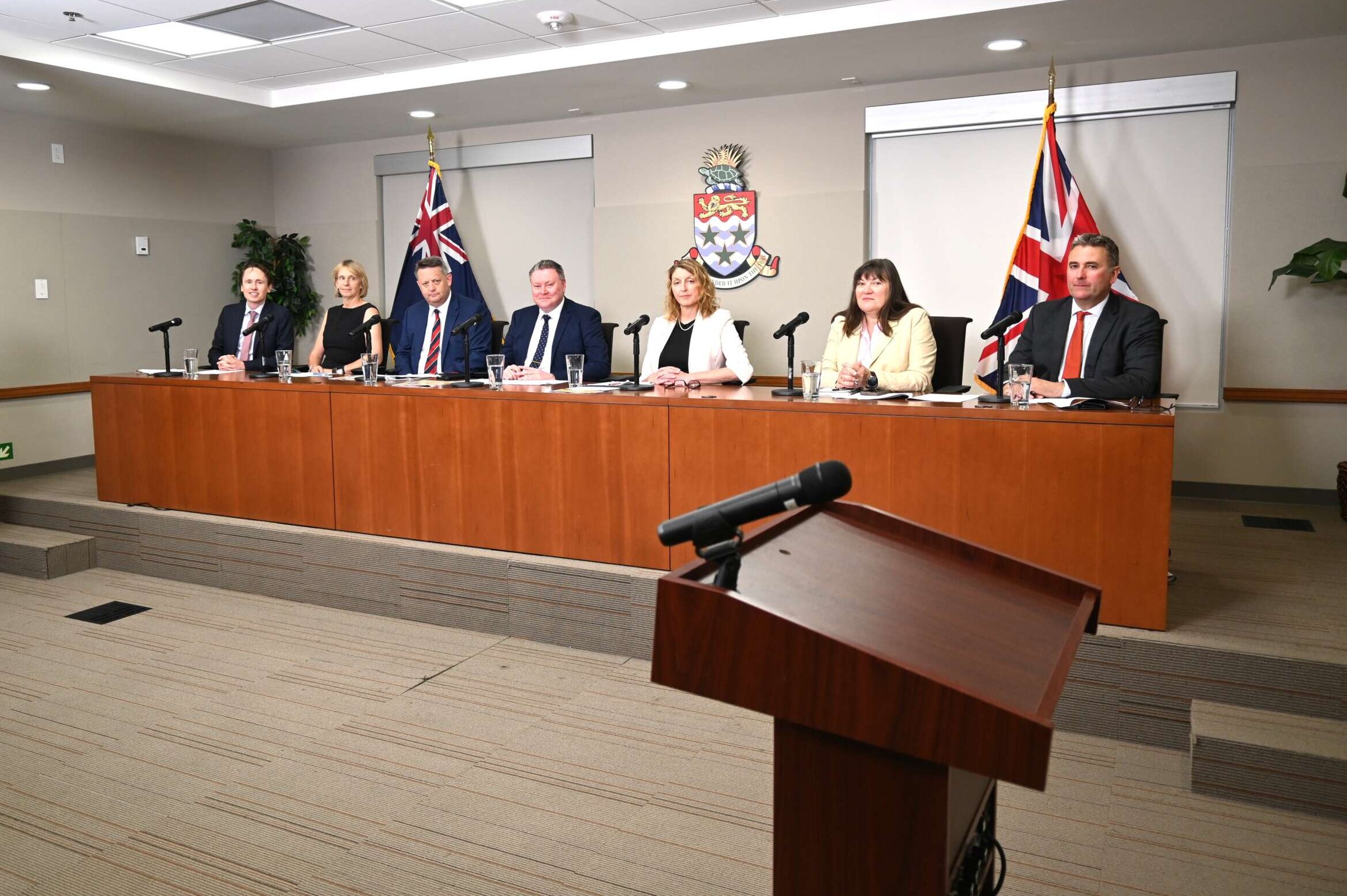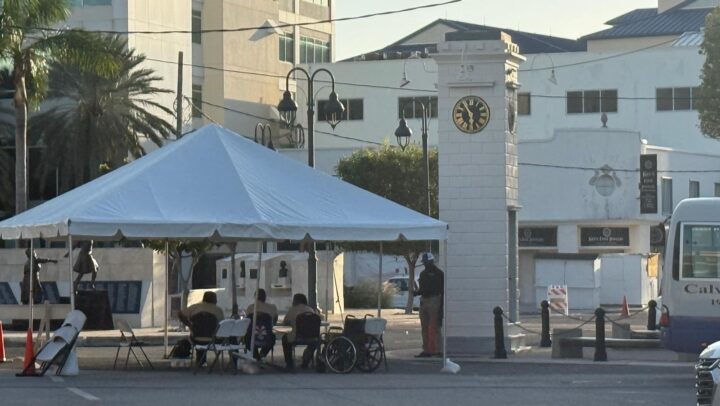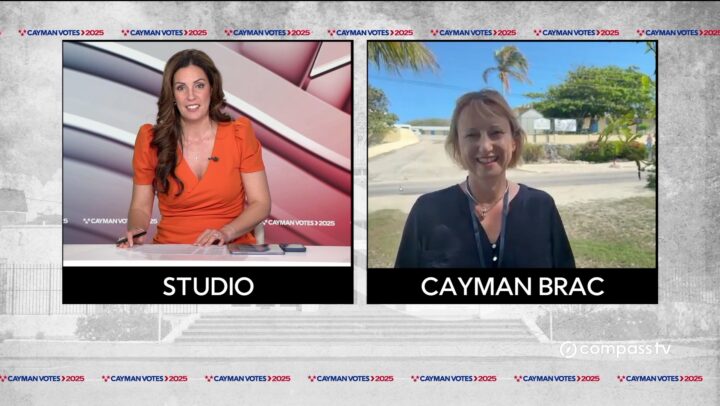
Loading the player…
Full Show
Cayman government Swearing-In-ceremony
Cayman’s new premier, André Ebanks, in his first speech as the leader of the country, immediately thanked God and his family, describing his wife Tiffany as his “wisest counsel and best friend”.
He gave special thanks also to his West Bay South constituents who returned him to office.
Commenting on his government’s choice of Ezzard Miller as speaker of Parliament, he said Miller, a veteran of politics, would make an “experienced, no-nonsense, on-time, competent” speaker.
“This is a serious mind to do a serious job,” he added.
Addressing the PPM opposition, he said he hoped they could have an advocatory, rather than an adversarial relationship in the House, and that both sides could work together.
He also paid special tribute to the late Judiann Myles, the head of anti-money laundering division in the Cayman Islands Monetary Authority, who was found dead in a burning car last month. He outlined her work in helping get the Cayman Islands off the Financial Action Task Force’s grey list of jurisdictions.
Calling for people to adopt more old-time values, he mentioned littering, road rage and bullying as examples of behaviour that did not reflect Cayman’s culture and traditions.
He closed with the comment, “For all who say Cayman is doomed, I rebuke that. Cayman is not out of the fight,” adding, “Let’s get this show on the road.”
| 03:38:46
Cayman Compass
Election candidate rules ‘arguably unreasonable’, observers say
The restrictions on who can stand for Parliament are “significant and arguably unreasonable”, a Commonwealth Parliamentary Association observer mission said on Friday.
The election observer team, from the association’s British Islands and Mediterranean Region section, highlighted the requirement for candidates to be resident in Cayman for at least seven years before nomination day, with no absence longer than 400 days during that time.
They added that the qualification to vote should also be examined as “a large number of long-term residents” could not take part in the democratic process because they lacked Caymanian citizenship.
Anne Marlborough, an election analyst from Ireland, said that there were “areas of the law that were not ideal”, such as legislation around who could stand for election and who could vote.





